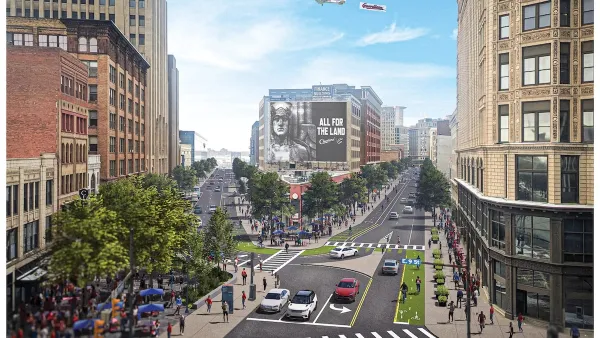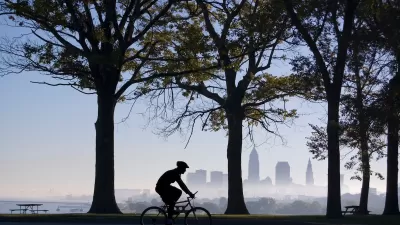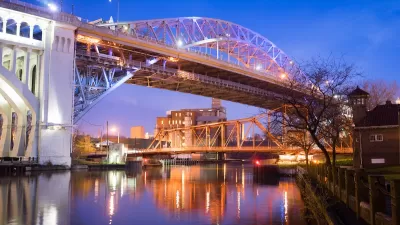As concern grows over the potential loss of community development and planning funds at the federal level, Indigo Bishop writes to remind us that communities have the networks and resources to make it through periods of scarcity.
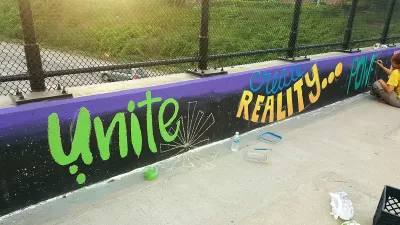
The Trump Administration's pledge to drastically cut federal funds for programs like HUD's Community Development Block Grants, which provide the backbone for urban development projects from community health initiatives to streetscape improvements, has residents and community leaders of urban neighborhoods understandably on edge.
The thinking goes that without block grants and other forms of federal funding, historically disinvested and vulnerable communities will lose whatever gains they've made in the past decade, sliding into despair and disarray.
There is no mistaking the challenges ahead. And while it's unconscionable that the people in power would take from those who need to give to those who have, there is a way forward for our nation's marginalized communities: counterintuitively, it involves forgetting the Feds altogether to make local changes ourselves.
The truth is, many communities have never had the luxury of dependable funding or support from any level of government or the philanthropic sector—in fact, public policies and practices like redlining and racist policing have obstructed opportunity for generations. Instead, communities have learned to rely on neighbors, friends, and family members—growing an informal network of support and pooling resources in the face of scarcity. It's important to remember that we've been helping each other for a long time.
As an Action Strategist with community crowdfunding organization ioby (or "In Our Backyards"), I see examples of this every day in the community leaders I work with in historically underserved neighborhoods across Cleveland. These community leaders find something that needs doing, and with a little coaching, help with strategic planning, and connections to an online fundraising mechanism and willing volunteers, they're able to execute on small, meaningful improvements right in their backyards.
All sweat equity and labor of love, no federal funding necessary.
There are inspired projects led by inspiring people all around us: "A Bridge that Bridges" is helping to bridge divides, both historical and physical, between Downtown Cleveland, a historically white neighborhood, and Cedar-Central, a historically black neighborhood. By bringing neighbors together to beautify the bridge that links the two—and have difficult, important conversations about race and equality—the project literally links different communities through art.
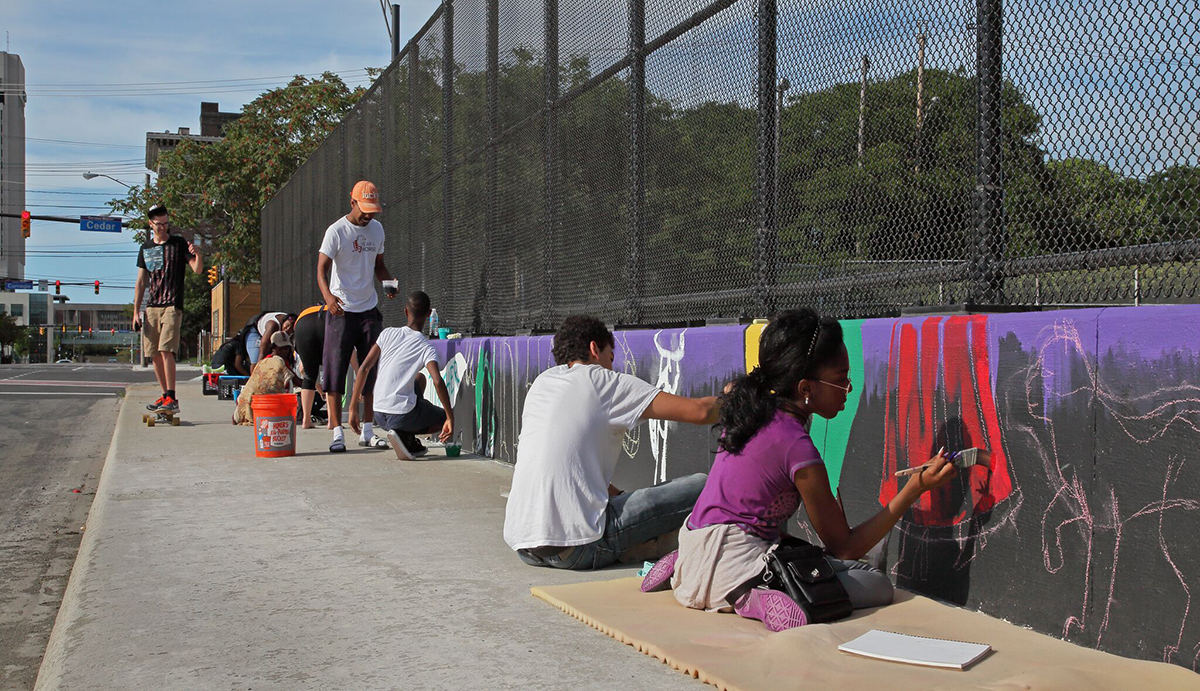
In the Woodland neighborhood, a grandmother and school crossing guard named Miss Lucille is taking the lead on fixing a deadly intersection for pedestrians, working with collaborators from elementary schoolers to architects.
Led by a young designer named Allison Lukacsy-Love, health-minded neighbors across the city have started a program called "Bus Stop Moves" to address two challenges: inactivity and long wait times at transit stops. Working in collaboration with the Greater Cleveland Regional Transit Authority, they're revamping bus stops into mini-gyms around the city.
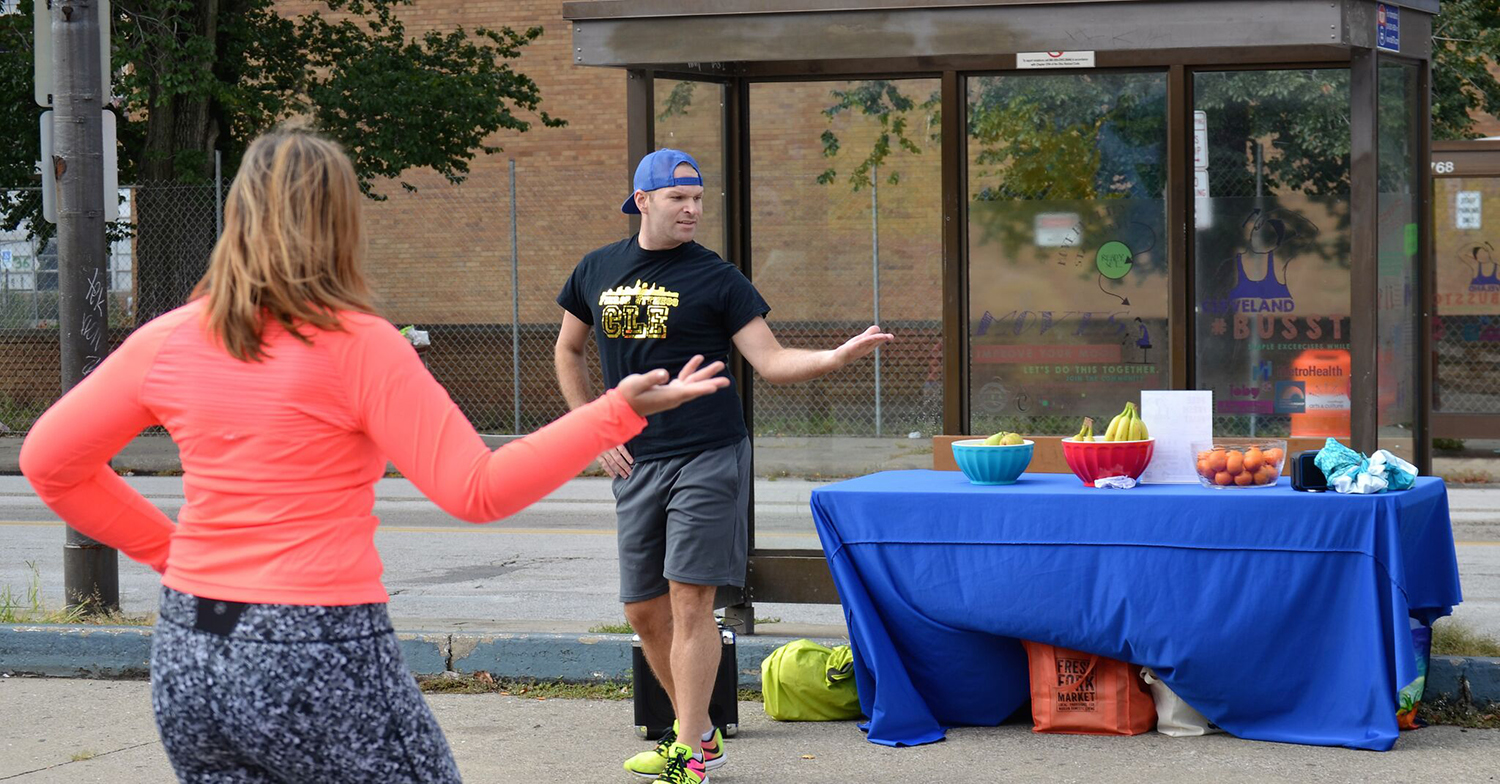
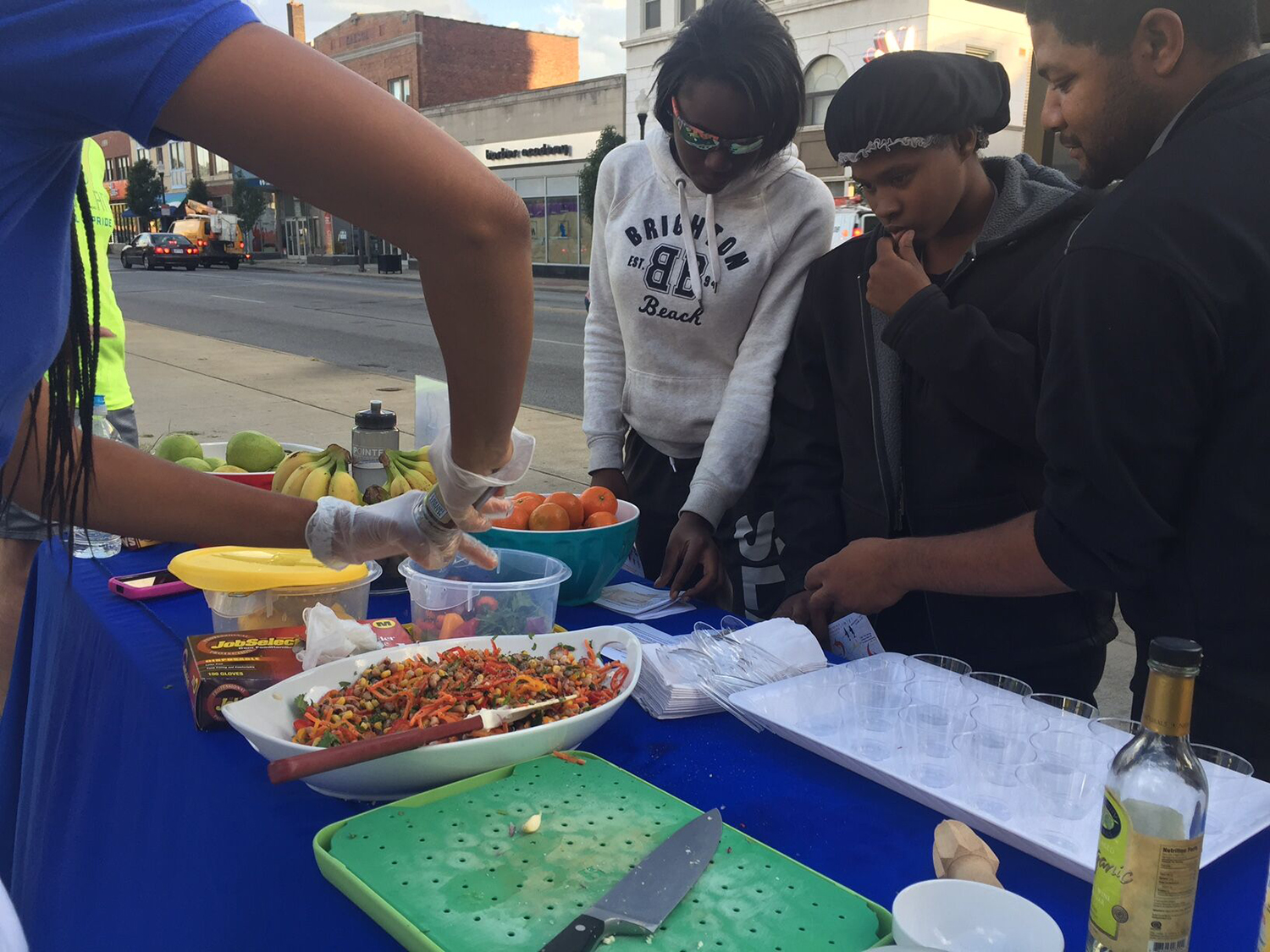
As small in scale as projects like these might seem, they should give us hope in the face of a seemingly unstoppable force of chopping and cutting and shutting down. We may not be able to replace the billions on the line, but over the course of decades, we've learned to be nimble, pool our resources, and do a lot with a little. Our networks of mutual support are stronger than we think, and our resolve is unshakable.
We're prepared to think creatively, support each other, and share what we have. This sense of community and creative problem solving will be key in the coming years.
Indigo Bishop, ioby's Cleveland Action Strategist, is a certified social justice mediator and a graduate of Case Western Reserve University, where she studied sociology, anthropology, and social work. She has traveled to Kenya, Ecuador and the Netherlands to study nonprofit organizations, community development, and social policy.

Maui's Vacation Rental Debate Turns Ugly
Verbal attacks, misinformation campaigns and fistfights plague a high-stakes debate to convert thousands of vacation rentals into long-term housing.

Planetizen Federal Action Tracker
A weekly monitor of how Trump’s orders and actions are impacting planners and planning in America.

San Francisco Suspends Traffic Calming Amidst Record Deaths
Citing “a challenging fiscal landscape,” the city will cease the program on the heels of 42 traffic deaths, including 24 pedestrians.

Defunct Pittsburgh Power Plant to Become Residential Tower
A decommissioned steam heat plant will be redeveloped into almost 100 affordable housing units.

Trump Prompts Restructuring of Transportation Research Board in “Unprecedented Overreach”
The TRB has eliminated more than half of its committees including those focused on climate, equity, and cities.

Amtrak Rolls Out New Orleans to Alabama “Mardi Gras” Train
The new service will operate morning and evening departures between Mobile and New Orleans.
Urban Design for Planners 1: Software Tools
This six-course series explores essential urban design concepts using open source software and equips planners with the tools they need to participate fully in the urban design process.
Planning for Universal Design
Learn the tools for implementing Universal Design in planning regulations.
Heyer Gruel & Associates PA
JM Goldson LLC
Custer County Colorado
City of Camden Redevelopment Agency
City of Astoria
Transportation Research & Education Center (TREC) at Portland State University
Jefferson Parish Government
Camden Redevelopment Agency
City of Claremont


























